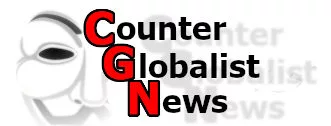The World Health Organization (WHO) and the European Commission, the executive branch of the European Union (EU), have recently launched a partnership to establish a global digital vaccine passport. This initiative, known as the WHO Global Digital Health Certification Network (GDHCN), aims to promote a system that facilitates global mobility and safeguards individuals from ongoing and future health threats, including pandemics.
Starting this month, the WHO will adopt the EU’s digital COVID-19 certification system as a basis for the global passport. The WHO and the European Commission state that the GDHCN will develop various digital products to enhance healthcare accessibility for everyone while ensuring equity, innovation, transparency, and data protection.
It’s important to note that the WHO emphasizes that the collection of personal data through these digital passports will remain the responsibility of governments and not the WHO itself. This means that governments will retain control over individuals’ personal information.
While the WHO and the European Commission view this collaboration as a significant step toward improving global health services, some experts have expressed concerns about the potential implications for personal freedom and movement. Independent journalist James Roguski suggests that the WHO is implementing initiatives like the global digital vaccine passport even before concluding negotiations. He believes that the ongoing negotiations surrounding the International Health Regulations (IHR) are not truly transparent.
According to Michael Rectenwald, author of “Google Archipelago: The Digital Gulag and the Simulation of Freedom,” a digital passport system, under the pretext of preserving freedom, could lead to restrictions on movement for the unvaccinated and mandatory vaccinations as a requirement for participation in various aspects of life.
The WHO-European Commission collaboration was announced shortly after the World Health Assembly (WHA), the annual meeting of the WHO. While the pandemic treaty and IHR amendments were not finalized during the assembly, WHO officials warned about the future risk of pandemics, the spread of a potential “Disease X,” and the need to restrict personal liberties during health emergencies.
The EU has been at the forefront of advocating for digital vaccine passports, with the introduction of the “Green Pass” for its member states in late 2020. The EU’s experience with digital passes is highlighted as a successful example in the announcement. The “Green Pass” allowed for the free movement of individuals within EU borders and became widely adopted worldwide.
The EU’s strong support for vaccine passports is also evident in its proposals during the IHR negotiations. They seek to normalize the implementation of a global digital health certificate. The proposals include Passenger Locator Forms and the involvement of the International Civil Aviation Organization (ICAO) in defining technical requirements and safeguards for digital or paper health documents.
The WHO has been developing plans for the GDHCN since August 2021, focusing on technical specifications, implementation guidance, and ensuring global interoperability of immunization and health records. The EU’s efforts align with its goal of creating a “Digital Identity for all Europeans,” including a personal digital wallet with various documents. These initiatives seem to be in line with the United Nations’ Sustainable Development Goals (SDGs) and Target 16.9, which aims to provide a digital legal identity for all individuals by 2030.
Critics like Rectenwald argue that “pandemic passports” could be detrimental, leading to the loss of millions of lives and the erosion of rights for those who choose not to comply. They urge for scrutiny and caution regarding the WHO’s pursuit of global vaccination mandates, warning against the construction of a global totalitarian system.
It is crucial to note that this rewritten version of the article aims to present the information in a simplified and informative manner. The quotes and citations have been preserved without alteration to maintain the original context.


Leave a Reply